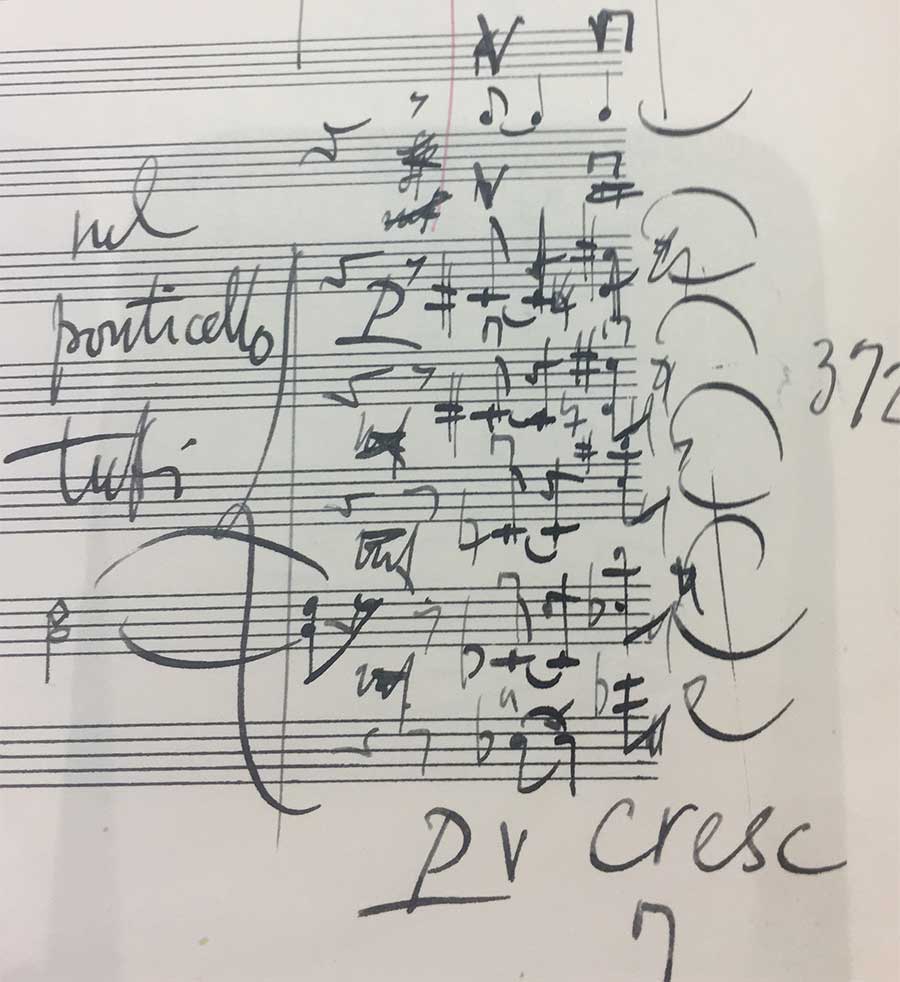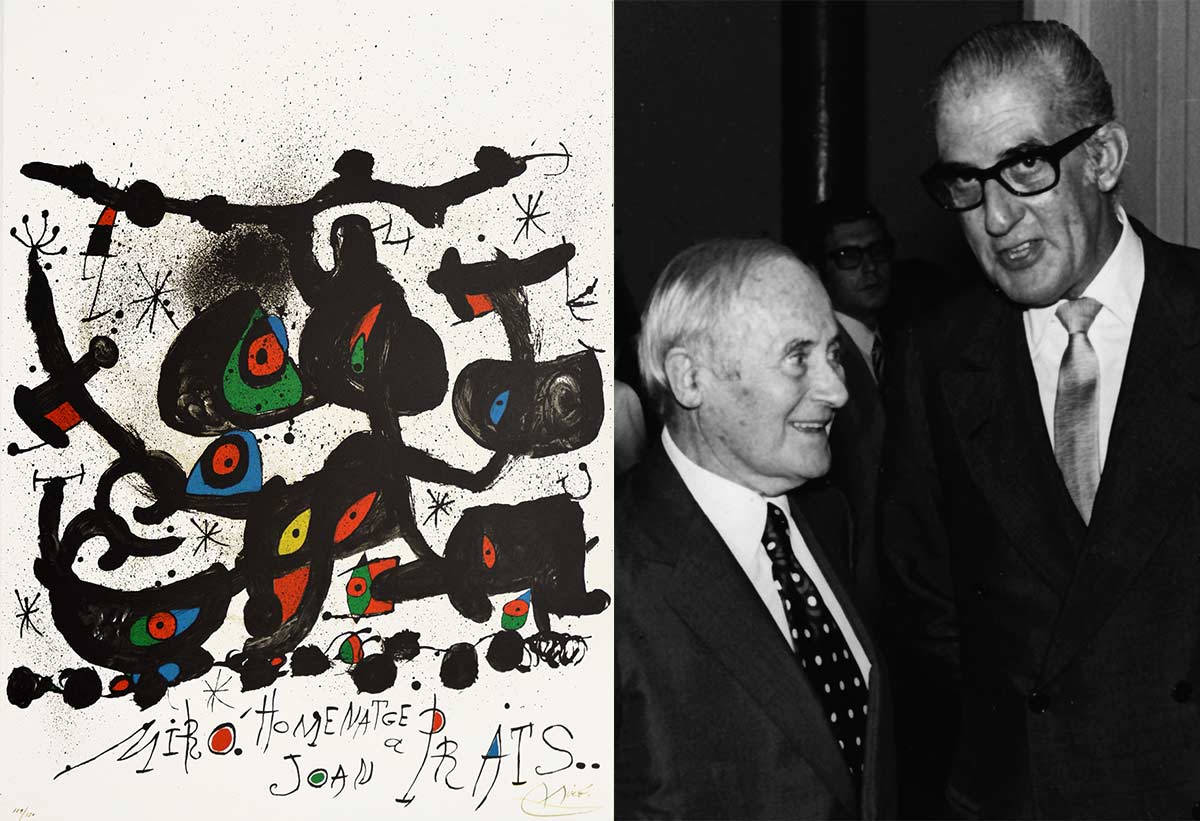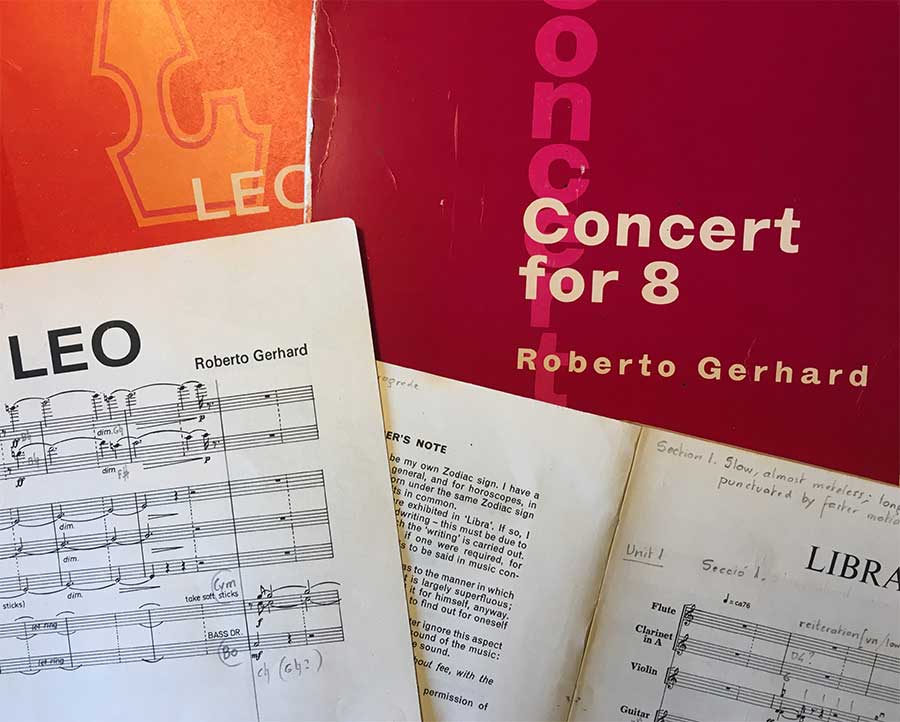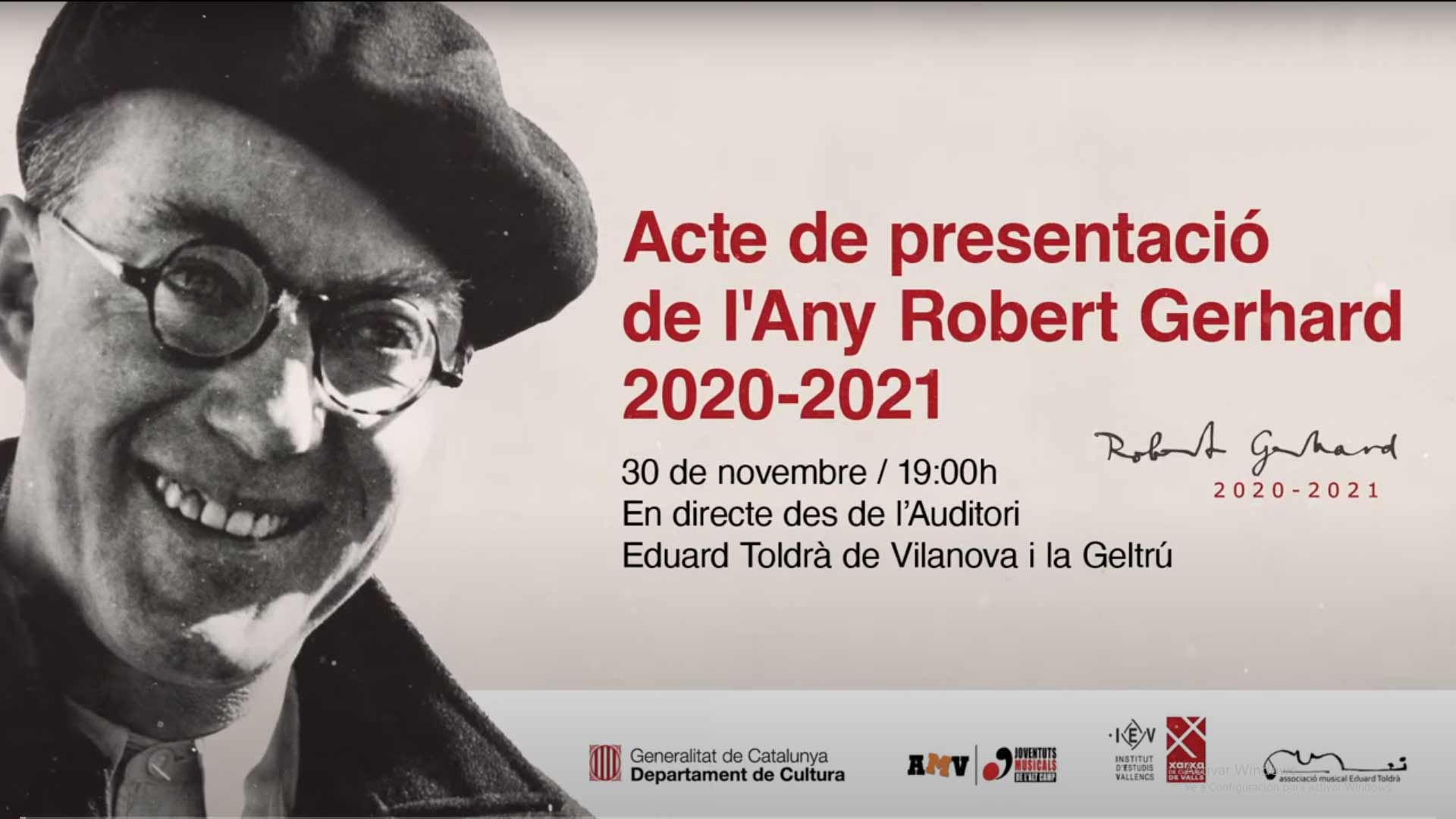A Robert Gerhard Celebration
2020-2021

Robert Gerhard, Symphony no. 2. Excerpt from the original manuscript.
Robert Gerhard (1896-1970), the most influential Catalan composer of the twentieth century, stands at the forefront of the most innovative aesthetic trends. Medieval, liturgical or profane music, the musical forms of the Renaissance and the Baroque, or popular music, are sources that nourish an overflowing imagination and an innate ability to transform the original material into a sound building of unquestionable architectural reliability. This is confirmed by the works of the last fifteen years of his life.
The Generalitat de Catalunya has celebrated the two coinciding anniversaries – the 50th of the death and the 125th of the birth – with a program representative of his multidisciplinary profile. Edmon Colomer has been the commissioner.
Concert for 8 | 60 Anys Després
Casa Gomis. La Ricarda

2. Joan Miró and Ricard Gomis
Casa Gomis, located on “La Ricarda” state, in Prat de Llobregat (Catalonia), was a space of freedom that welcomed intellectuals and artists such as Joan Prats, Antoni Tàpies, Joan Miró, Robert Gerhard, Joan Brossa, John Cage, or Merce Cunningham. Commissioned in 1949 by the Ricard Gomis (1910-1993) and Inés Bertrand (1915-1992) couple to the architect Antonio Bonet Castellana (1913-1989), it was completed in 1963. Robert Gerhard dedicated the Concert for 8 to the Gomis-Bertrand family on the occasion of the inauguration of ths house but the work was not premiered there until May 22, 2022 with the Novarts Ensemble conducted by Edmon Colomer.
London Sinfonietta
A Catalan Celebration

Robert Gerhard Scores
In 1973, the London Sinfonietta, led by the conductor and musicologist David Atherton, dedicated a cycle of twenty-six concerts to Robert Gerhard and Arnold Schoenberg. A posthumous tribute to the two explorers who showed the new generations the why and how of contemporary musical creation. In 2021, at the Huddersfield Festival and again in London, the LS joined the Gerhard celebration with a programme of Catalan and Australian music featuring some of the heirs of this audacious and fruitful endeavour.
Links. London Sinfonietta
Abstract
Whether surprising or incomprehensible, the new languages preserve the essence of tradition, and at the same time they propose new ways of observing the world and reproducing sound. Indeed it is the effort of the composers who will one day become classics that counts in the key transformation processes. Debussy, Stravinsky, Bartók, Scriabin, Reger, Schönberg or Gerhard, as well as their equivalents in the visual arts, Picasso, Miró, Klimt, Klee -just to mention the names of such a fertile generation- will go beyond the explored paths to establish the canons of a new era.
From “La malvestat d’Oriana” by Josep Carner to “La Peste” by Albert Camus, Robert Gerhard confirms himself as one of the most universal Catalan composers and certainly a world reference of the first half of the 20th century. It is just over a decade since his work has begun to receive serious critical attention from musicologists, theorists and analysts. I would like to believe that the celebration of two consecutive anniversaries, the fiftieth of the death and the one hundred and twenty-fifth of the birth, has been an important stimulus for musicians and programmers.
In the Abstract you will find the summary of the activity generated in Catalonia following this celebration. Concerts, choreographic shows and festivals and the corresponding academic activity, supported by a traveling exhibition, have contributed to spreading a work, which includes everything from popular music to the incipient research on electronic sound that Gerhard integrated into his last works.
The concepts of form, time, proportion, system, method, style, tonality, atonality, serial music, abstract music, and so many others, take unexpected scope in the precise pen or incisive verb of Robert Gerhard. The continuity of his speech no longer fits the schemes of an era that has exhausted traditional expressive resources. He has found more suitable ones, but more cryptic and difficult to access.
Having lost the traditional references, the ear asks for help. . “Listen”, advises the illustrious man, “listen again and again”, ready to let us be surprised. Draw a door on the inaccessible wall of the dreaded avant-gardes and open it without prejudice.
https://cultura.gencat.cat/ca/temes/commemoracions/2020/anyrobertgerhard/inici/

